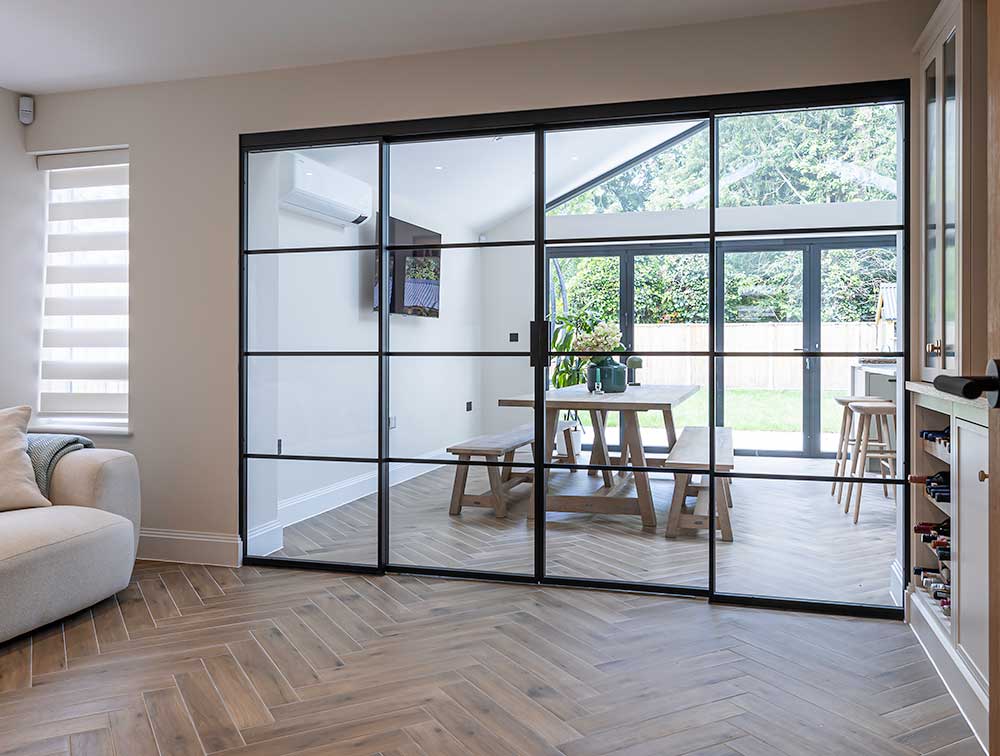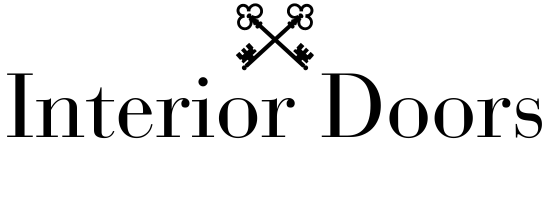
Do Steel Doors Slam Shut?
Samuel MorrisDo Steel Doors Slam Shut? A Complete Guide for Homeowners & Designers
Steel doors are no longer just for industrial spaces or commercial buildings. They’ve become a symbol of modern luxury—found in stylish London flats, minimalist Scandinavian homes, and open-plan loft conversions alike. But with their growing popularity comes a common concern: do steel doors slam shut?
View OTIF Steel doors - Click Here

It’s a fair question. When you're investing in bespoke doors—whether pivot, sliding, internal, or fire-rated—you want assurance that they’ll not only look stunning but also perform quietly and smoothly. Nobody wants a heavy steel door jolting shut in the middle of a peaceful evening. In this blog, we’ll explore whether steel doors really slam shut, what factors influence this, and how modern hardware and professional installation can completely eliminate the problem.
Why the “Steel Equals Slamming” Myth Exists
Let’s start with the core assumption: steel is heavy, and heavy things slam. But that’s not the full story.
Steel doors are heavier than timber or composite options. A single steel pivot door, for example, may weigh twice as much as a standard wooden door of the same size. But whether or not a door slams isn’t purely about weight—it’s about momentum, hardware, and how the door is installed.
A heavier object does carry more momentum when it moves, but that momentum can be managed. With modern hinge systems and soft-close mechanisms, even the heaviest doors can glide into place with barely a sound.
In fact, steel doors are often quieter when fitted correctly. Why? Because their weight helps them stay on course, resist movement from small drafts, and engage more predictably with high-quality hinges and dampers.

What Actually Causes a Door to Slam?
Slamming is more about dynamics than materials. Several variables can make a door slam:
- Air pressure: In airtight or insulated homes, opening or closing one door can create an air vacuum that forces another door to slam.
- Speed of motion: If a user pushes the door with force or the wind catches it, a rapid swing can lead to a hard impact.
- Poor hardware: Cheap hinges, lack of closing control, or no dampers at all allow the door to move freely and close abruptly.
- Installation errors: Misalignment or improper leveling can cause uneven weight distribution or accelerated closure.
In most cases, it’s not the door that’s at fault—it’s the system that supports it. A well-designed steel door system with quality hardware should close slowly, smoothly, and silently.
How Pivot Steel Doors Behave
Pivot doors have become a signature feature in high-end renovations. These doors swing on a central or offset pivot rather than traditional side hinges, creating a floating, elegant movement.
Steel pivot doors are usually fitted with soft-close pivot hardware. These mechanisms include built-in dampers that slow the final movement of the door, preventing a slam. The better the hardware, the better the soft-close control. In premium setups, you can even adjust the speed and resistance.
Pivot steel doors also benefit from having a balanced swing. Because they rotate on a central point, the weight is distributed more evenly than on a hinged door. This further reduces the chance of slamming, even in breezy conditions or busy homes.
If your pivot door slams, it’s usually due to the absence of soft-close pivot hardware or poor installation, not the door itself.

What About Sliding Steel Doors?
Sliding steel doors offer perhaps the best guarantee against slamming. Since they don’t swing, there’s no momentum to cause a hard close. Instead, they move along a track and usually come equipped with end-of-track dampeners or soft-close buffers.
These doors are incredibly popular in kitchens, offices, and contemporary open-plan homes. They offer space-saving benefits, sleek lines, and nearly silent operation. Slamming is virtually impossible—unless someone forces the door down the track aggressively and the buffers are missing.
Sliding steel doors also allow for optional lock stops, hold-open positions, and gentle braking systems. It’s one of the easiest ways to get the look of steel without worrying about the sound of a slam.

Do Fire-Rated Steel Doors Slam?
Fire-rated steel doors are a different category altogether. These doors are required to close automatically and latch securely to meet safety codes. As a result, they’re fitted with spring-loaded or hydraulic closers that ensure the door shuts behind you, every time.
Some of these doors are perceived to slam—but this is usually due to poor adjustment. High-quality closers are adjustable, allowing installers to tune the speed and force of the close. When installed correctly, even a fire-rated door can close firmly but quietly.
If you have a fire-rated steel door that slams harshly, it’s likely that the closer just needs an adjustment. A professional installer can usually resolve this in minutes.

Internal Steel Doors and Their Performance
Internal steel doors are designed for comfort, privacy, and visual flow. Found in living rooms, bedrooms, bathrooms, and home offices, they tend to have slimmer profiles and include large areas of glass to maximise natural light.
Because these doors are used frequently, many homeowners opt for magnetic catches, soft-latching hardware, or concealed dampers. These additions ensure a soft and secure close—ideal for homes with children, pets, or noise-sensitive environments.
Steel internal doors are rarely prone to slamming unless the installation is off, or if there’s a strong draught in the room. In most cases, the door is so well-balanced and finely engineered that closing is smooth and graceful by default.

How to Stop Steel Doors from Slamming
If slamming is a concern, there are multiple ways to avoid it:
- Soft-Close Pivots: For pivot doors, this is the gold standard. They regulate swing and slow the door gently as it nears full closure.
- Overhead or Floor Closers: These can be added to fire-rated or entry doors to control speed and prevent a slam.
- Magnetic Catches: Perfect for internal doors, these help hold the door closed with just the right resistance.
- Compression or Acoustic Seals: These add resistance near the close and create a cushioned finish, while also enhancing soundproofing.
- Track Buffers: For sliding doors, always ensure there are soft-end buffers or braking units at each end.
- Professional Adjustment: If a door is slamming, it might be due to a minor misalignment or loose hardware—both fixable by an experienced installer.

Does Air Pressure Contribute?
Absolutely. In modern, airtight homes, internal air pressure can create a vacuum effect when you open or close doors. This might make nearby doors close faster or harder than expected.
To reduce this, ensure there is adequate ventilation or air transfer grilles between rooms. Your HVAC system may also need rebalancing. In homes with multiple steel doors, particularly those with glass, it's worth assessing how airflow affects door behavior.

Retrofitting Solutions for Existing Doors
If you already own steel doors that slam shut, don’t worry—you don’t need to replace them. Most systems can be retrofitted with soft-close hinges, magnetic catches, or dampers.
The key is to identify the cause: is it airflow, bad hardware, or improper leveling? Once diagnosed, the fix is usually straightforward.
Interior Doors Ltd, for example, offers assessments for existing installations and can advise on the most efficient fix for your situation. Our installers are trained in both new builds and retrofit scenarios.

Are There Times You Want a Door to Slam?
In specific environments—like secure facilities or emergency fire zones—a fast-closing, slam-shut mechanism might be deliberate. It's designed to lock quickly and seal tightly under specific conditions.
However, in residential and modern commercial interiors, slamming is almost always a negative. It’s loud, jarring, and unnecessary given the technology available today. You shouldn’t accept it as normal, especially not with steel.

Should You Be Worried When Buying Steel Doors?
If you're purchasing from a reputable supplier, there's no reason to worry about slamming. At Interior Doors Ltd, we engineer each steel door set to provide smooth, soft, and secure closing action. We use top-quality hardware—hidden floor pivots, concealed hinges, adjustable closers—and our installation team ensures perfect alignment.
We also walk customers through every option, including seals, catches, and safety features, so you get full control over how your door functions. Whether you're designing a minimalist home, a boutique hotel, or a luxury office, you can expect whisper-quiet performance.

Why Steel Is Still the Smart Choice
Steel doors are incredibly durable, secure, stylish, and flexible. They fit into virtually every interior design trend—from industrial to Scandinavian to contemporary luxury.
And when it comes to concerns like slamming, steel actually gives you more control, not less. The weight helps doors move consistently. The precision engineering makes them easier to manage. And the hardware available—especially for pivot and sliding designs—outclasses almost everything on the market.
When installed correctly, a steel door doesn’t slam. It glides. It closes with elegance. It’s functional and beautiful in equal measure.

Final Thoughts
So, do steel doors slam shut?
The simple answer is: only if poorly installed or fitted without proper hardware. With today’s technology, there’s no reason to endure slamming doors in your home or business.

At Interior Doors Ltd, we’ve helped hundreds of clients find peace of mind and visual satisfaction with steel doors that are built to last and designed to perform quietly. Whether it’s a bespoke pivot door, a sleek sliding system, or a fire-rated entry solution, we ensure it functions as smoothly as it looks.
If you're ready to experience a better kind of door, speak to our team or visit our showroom. We’ll help you select a steel door system that fits your space—and never slams shut.
